


Gentle Emotional Support Through Paediatric Psychology in Perth
Gentle emotional and behavioural care is available through paediatric psychology in Perth. Perth CDC supports children using respectful, age-appropriate strategies. Every approach is tailored to the child’s needs.



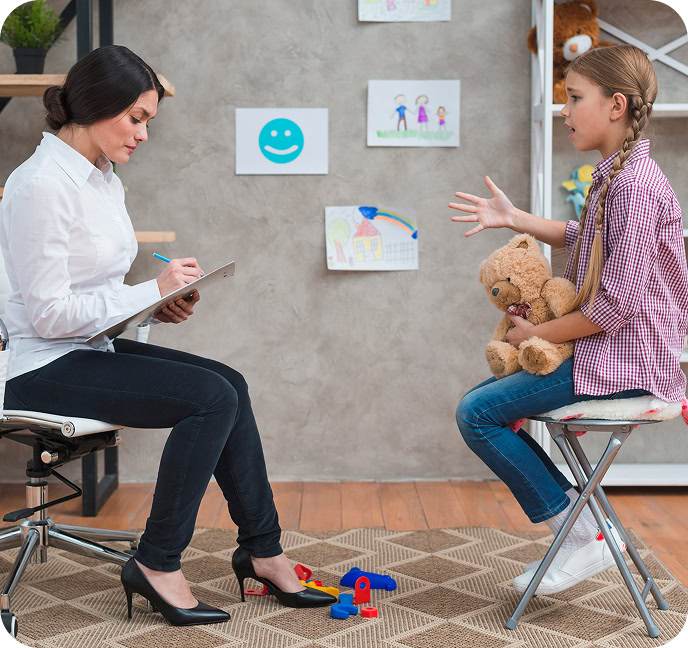
Understanding Thoughts, Emotions, and Behaviour in Growing Minds
As children grow, they may experience emotional or behavioural challenges that influence how they think, feel, and interact with others. Paediatric psychology offers a safe and supportive way to explore these concerns. Using conversation, observation, and play-based tools, psychologists work closely with families to better understand each child’s strengths, needs, and daily experiences. From there, they develop a tailored plan to foster emotional growth, resilience, and everyday well-being.
Candidate
When Psychological Support May Be Helpful for Children
Emotional and behavioural challenges can impact how a child manages daily life. Changes in mood, relationships, or routines may signal a need for additional support. The signs below may help you decide when to explore developmentally appropriate care that promotes well-being at home, school, and in social situations.
- The child experiences frequent emotional outbursts, worry, or sadness that feels overwhelming for their age. These reactions are becoming more difficult to manage at home or school.
- Noticeable changes in mood, sleep, or focus have developed over time, making it more difficult for the child to cope with routines or transitions.
- Teachers or carers have raised concerns about social behaviour, emotional reactions, or the child's ability to participate in group activities and classroom learning.
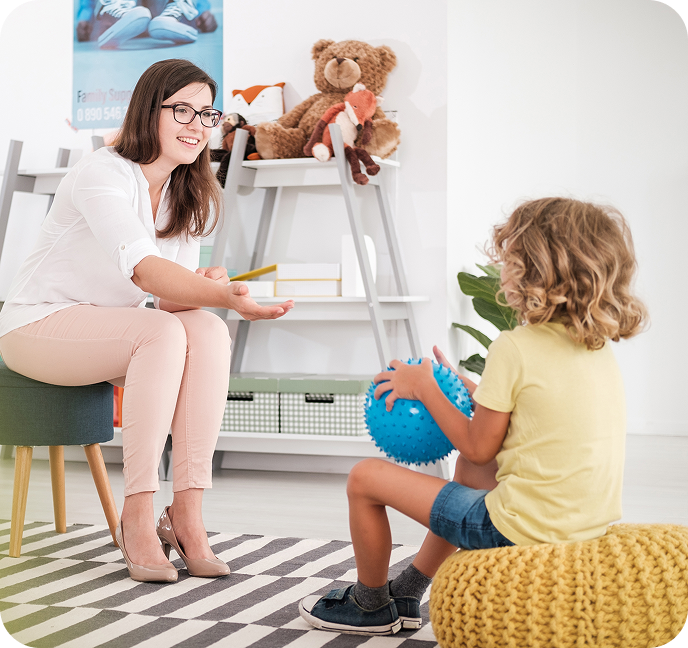

Benefits
What Children and Families Can Gain From Therapy
Psychological therapy provides children and families with a safe space to reflect, learn, and grow. With the right support, many families experience meaningful changes in their daily lives. Below are some of the ways therapy can support a child’s development, strengthen relationships, and ease challenges at home or school.
- Children develop ways to express how they feel using words, gestures, or pictures. This fosters clearer communication and lowers frustration during everyday challenges.
- Families gain strategies to respond to strong emotions or outbursts with calm, consistent actions. This helps reduce tension and builds a more settled routine.
- Therapy promotes emotional awareness, problem-solving, and resilience over time. These skills help the child manage stress, build friendships, and handle difficult situations with more confidence.
Get in Touch for Paediatric Psychology Appointments





Why Families Choose Our Paediatric Psychology Services
Big feelings, changes in behaviour, or emotional struggles can be hard to navigate alone. Our psychology team offers gentle, thoughtful care that helps children feel safe, understood, and supported.
A Warm Approach That Builds Trust Over Time
Children open up when they feel safe. Our psychologists take time to get to know each child, using play, conversation, and creativity to build a strong therapeutic relationship. Sessions are paced to suit your child’s comfort and emotional readiness. By creating a calm and non-judgmental space, we help children feel heard and supported, which often lays the foundation for positive changes in behaviour, well-being, and self-confidence.
Emotional Support That Meets Children Where They’re At
We understand that emotions can look different in every child, sometimes loud and overwhelming, other times quiet and withdrawn. Our psychologists are trained to recognise how distress or anxiety might show in your child’s actions or responses. We offer practical strategies and gentle guidance that meet your child where they are, helping them feel more regulated, resilient, and better equipped to manage everyday emotional challenges.
Working Together With Parents and Carers
Your role in your child’s emotional development is vital. That’s why we work in close partnership with families, offering insight into what your child might be experiencing and what may help. We share strategies that are simple, consistent, and realistic to apply at home. Our team is here to listen, guide, and support not only your child but also you through the highs, lows, and in-betweens of their emotional development.
Support for a Range of Emotional Challenges
Children may struggle for many reasons, including anxiety, low mood, school stress, sibling conflict, or difficulties with self-regulation. We take a broad, holistic view of each child’s emotional well-being and tailor our support to suit their needs. Where helpful, we also collaborate with other Perth CDC clinicians so your child’s care plan considers both emotional and developmental aspects in a cohesive and coordinated manner.
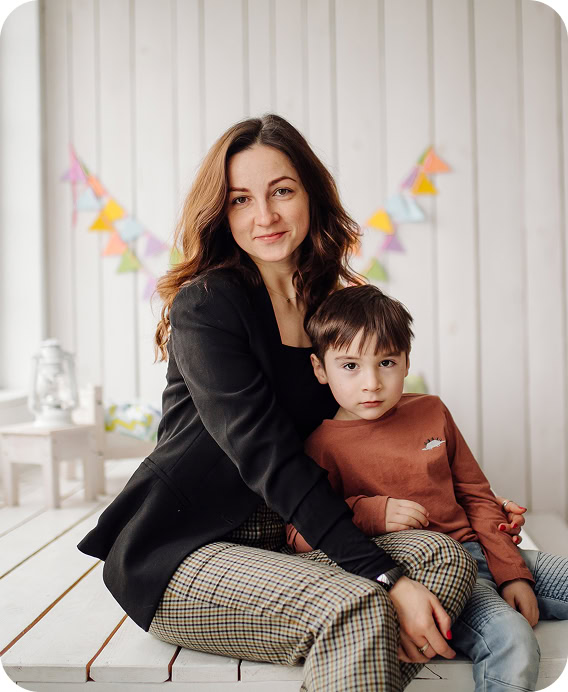



Get to Know the Dedicated Professionals Behind Your Child’s Care

PAEDIATRICIAN | MBBS, MD, FRACP
AHPRA Reg. No. MED0001173471
Dr. Feng brings experience as a consultant paediatrician with a focus on developmental and general medical concerns. Her approach is calm, attentive, and family-focused.

DIRECTOR AND MEDICAL LEAD | MBBS, DCH, FRACP, GCAD
AHPRA Reg. No. MED0001526597
As co-founder and senior paediatrician, Dr. Karande manages care for children with autism, ADHD, and behavioural concerns. He is ADOS‑2 trained and experienced in developmental paediatrics.

CONSULTANT PAEDIATRICIAN | MBBS, FRACP
AHPRA Reg. No. MED0001551395
Dr. Chawla is a general paediatrician who manages acute and chronic childhood conditions. Her interests include feeding issues, eczema, asthma, and developmental care.

DIRECTOR | BSc (Hons) Speech and Language Pathology
Claudia is a speech pathologist who works with children with speech, language, and communication needs through engaging, individualised sessions that build skills and confidence.

DIRECTOR | MClinPhysio (Curtin), BSc Physiotherapy
AHPRA Reg. No. PHY0001846525
Simone, a paediatric physiotherapist, helps children build strength, balance, and coordination using fun, movement-based therapy to promote functional everyday development.
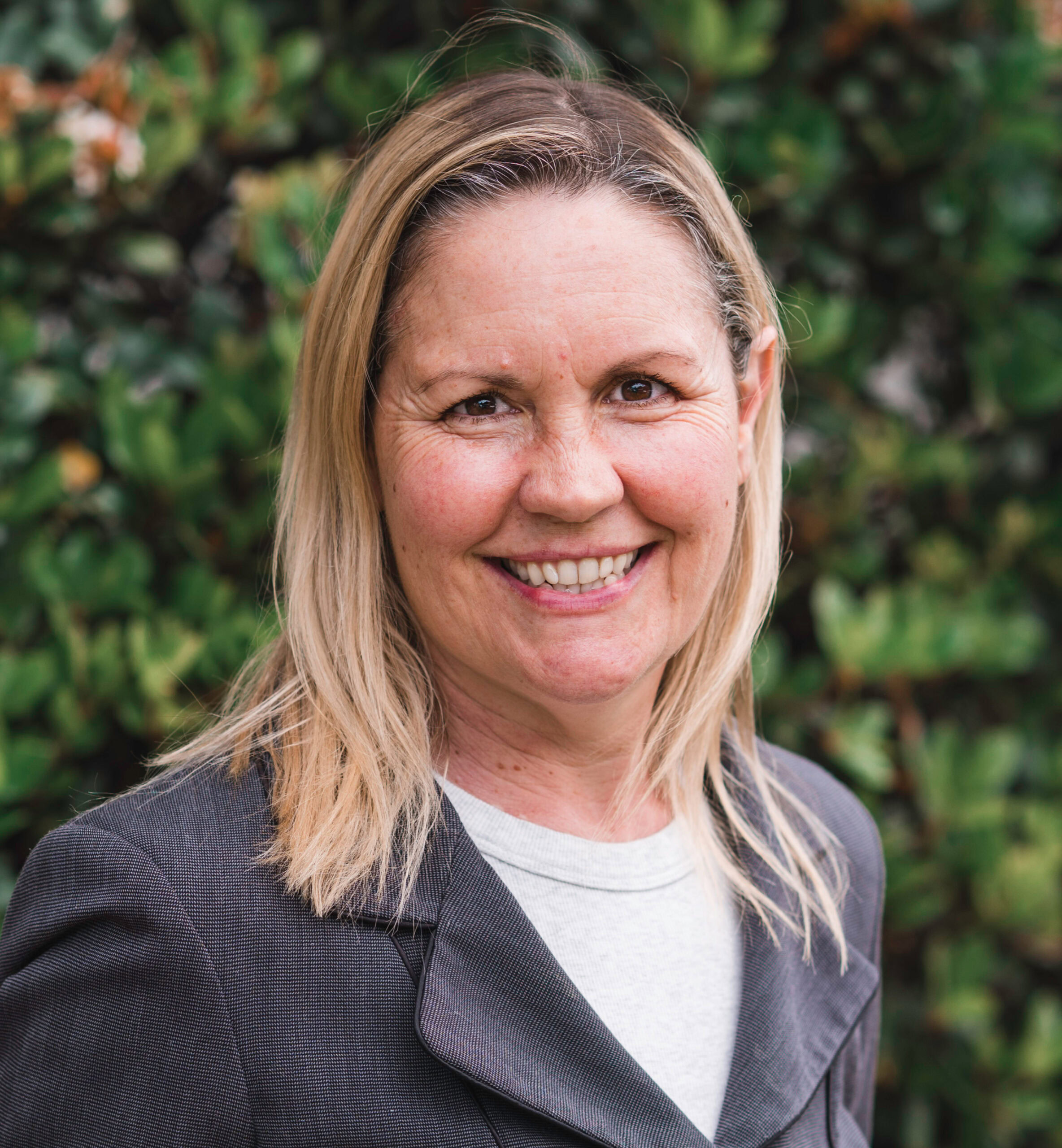
SPEECH PATHOLOGIST | BHLTHPROM, GRADDIPPSYCH, BSPPATH

PSYCHOLOGIST | BA SC (PSYCH), (HONS), MPSYCH
AHPRA Reg. No. PSY0002656530
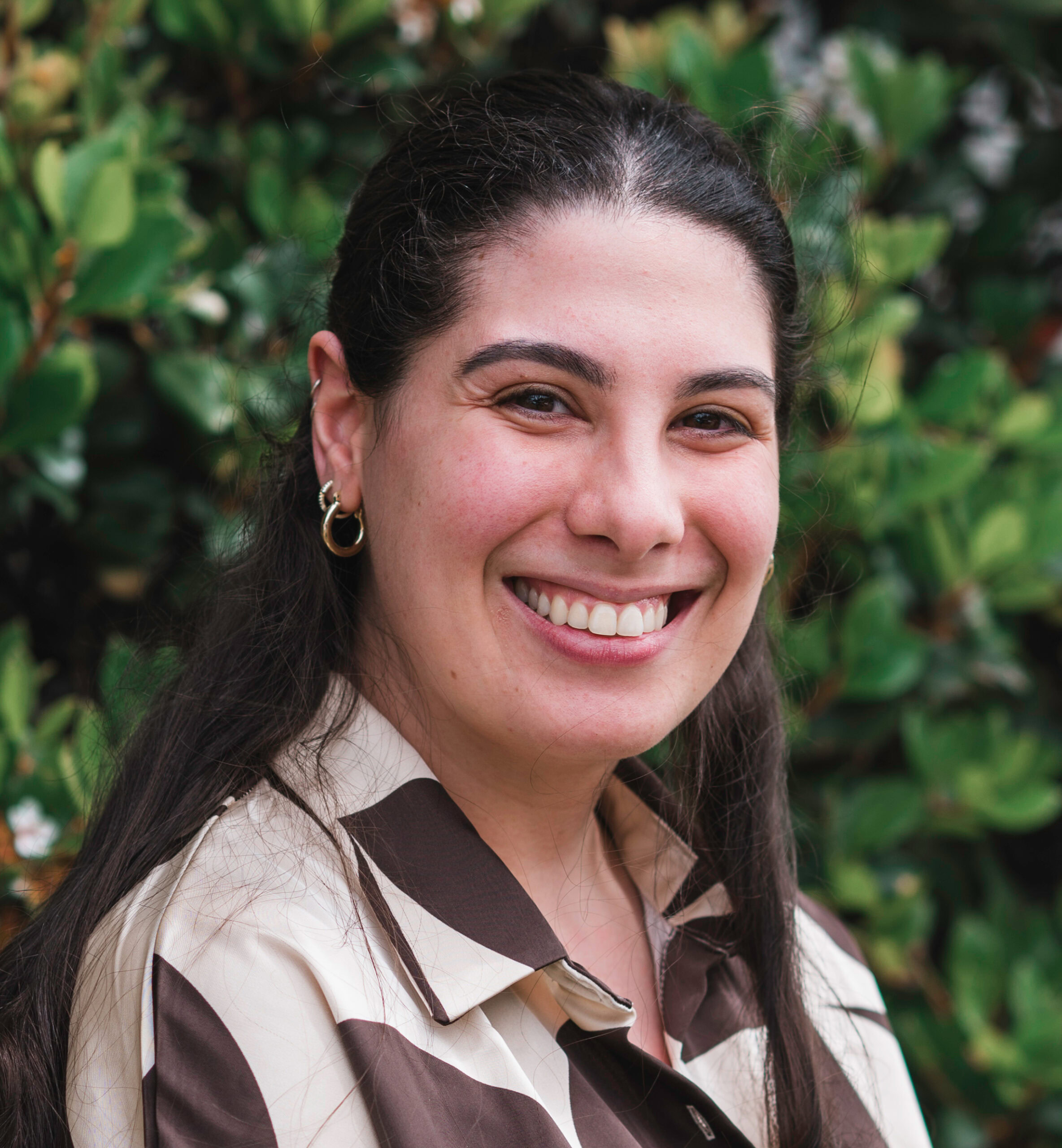
OCCUPATIONAL THERAPIST | BOccTher, BExSc
AHPRA Reg. No. OCC0002737291
Jasmine Berlingeri has a background in exercise science and occupational therapy. She uses creative and supportive approaches to assist children in developing skills and strengthening family involvement in daily activities.
What Families Say About Their Perth CDC Experience
Parents often share that they feel supported, understood, and genuinely cared for. Their feedback reflects the strong, trusting relationships that have been built between families and our team.
Thank you Perth CDC for your kind and empathetic receptionist Hetal and wonderful, professional Dr Amruta Pendse for caring for my son. I am forever grateful for your guidance and support. I would highly recommend Perth CDC to any mother, parent, guardian or family.
Dr Karande made my child & myself feel very comfortable. We have had our initial session so far & he was thorough & did not rush us (even though we were late with traffic.. ) Also Hetal who runs the office was very kind & organised an appointment promptly.
Doctor Karande is an amazing Paediatrician I have never met anyone like him before. His caring and understanding, very thorough with his work. Will listen to your concerns and take every precautionary measure. I highly recommend Dr Karande to anyone who needs to see a paediatrician.
Dr Karande is a supportive and caring practitioner who has been a great support to our family from childhood and through teenage years. We couldn’t recommend Perth CDC more highly. Hetal has also been amazing in working through appointment requests and helping to make a sometimes stressful process, very easy.
This clinic have been amazing for my children’s assessments and appointments. Dr Karande really invests time to connect with the children and assess them genuinely. We have also seen Dr Pendse who has been very supportive and listens to the needs of my child, as well spending time to answer my questions and explain things clearly.
Perth CDC has been beyond amazing with my children. The care and compassion Indi and Hetal have shown us as a family is to the highest standard. I can not recommend Perth CDC enough and words can never express how much they have helped us. My children’s growth under their care has exceeded my expectations.
Highly, highly recommend Dr Kerande. What an exceptional paediatrician. We sought him out to assess my siblings to see if they have ADHD – he was not only thorough, but reassuring and well knowledged. He is also brilliant at building rapport with children. Cannot thank him enough and I don’t hesitate to recommend him to others. Thank you, Dr Kerande!
Dr Karande was very efficient and really took the time to listen to our concerns and we finally got a diagnosis.
Great service, patience and understanding from Hetal to Dr I. Karande. I know my son is in safe hands. Keep it up!!!
Dr Amruta Pendse has been empathic and thorough when helping my son and I with his ADHD diagnosis and treatment. Dr Amruta is very approachable and understanding and it’s great that I’m able to email with updates or concerns and receive a prompt response to my questions. Would highly recommend Dr Amruta Pendse and Perth CDC if your child is needing a paediatrician.
Dr Karande, Monika and Hetal are the most kind and caring group of people I’ve had the pleasure of working with for my daughter who has ASD and ADHD. The staff always make you feel welcome and ensure they provide the best care possible for your child. We have been coming to Perth CDC for 3 years and will continue to come here.
Thank you for the best experience! Could not fault paediatrician Indrajit S Karande. He was really friendly and made sure my husband and myself were able to spend moments after the birth with our son. He was thorough and made sure our baby was safe and healthy! It was such a nice experience. I highly recommend Perth CDC.
Frequently Asked Questions
This FAQ section helps families understand how psychological support can assist children with emotions, behaviour, learning, and day-to-day challenges.
What does a child psychologist do?
A child psychologist helps children with emotional, social, or behavioural challenges using practical tools and developmentally appropriate approaches.
Here’s what a child psychologist may help with:
- Support emotional development in children:
They assist children in recognising and managing emotions like sadness, anger, and worry in everyday situations. - Facilitate behavioural support for kids:
They offer strategies for children who struggle with routines, attention, aggression, or transitions. - Provide therapy for emotional regulation:
Therapy may include activities that teach calming techniques, emotional awareness, and coping strategies. - Assist families in managing challenges:
Parents can learn ways to respond consistently to outbursts, school refusal, or bedtime difficulties. - Work with other health professionals:
Psychologists may coordinate care with paediatricians, speech pathologists, or occupational therapists as part of a team-based plan.
Psychology for children can provide valuable support at different stages of development. At Perth CDC, this care is offered by an experienced team.
Can a child psychologist diagnose mental health conditions?
Some child psychologists may be qualified to identify certain mental health conditions depending on their training and registration.
They often assess conditions such as the following:
- Anxiety and mood difficulties:
These may include generalised anxiety, social fears, or signs of childhood depression. - Attention and behavioural concerns:
Psychologists can evaluate symptoms related to ADHD, emotional regulation, and disruptive behaviours. - Developmental differences:
This includes presentations on the autism spectrum and related social or communication challenges.
Diagnosis involves more than a single session. Psychologists gather information through interviews, observations, and standardised questionnaires. They may ask for input from teachers or other caregivers to build a comprehensive picture of the child’s strengths and needs.
In some cases, they work alongside paediatricians to confirm a diagnosis or guide the next steps. At Perth CDC, child psychologists are part of a collaborative team that includes paediatricians and allied health professionals.
How does psychology support emotional regulation in kids?
Paediatric psychology supports children who experience emotional, behavioural, developmental, or learning difficulties that affect their daily lives at home, in school, or in social settings.
Here are some of the common areas it can help with:
- Emotional regulation difficulties:
This may involve frequent mood swings, intense reactions, or trouble calming down after becoming upset. - Social or peer challenges:
Some children may struggle with confidence, friendships, or understanding social cues. - Anxiety or worries:
Children who experience constant fear, avoidance, or physical symptoms related to stress may benefit from support. - Attention and learning differences:
Paediatric psychologists can assist with difficulties related to focus, planning, and classroom behaviour. - Adjustment to life changes:
Support may be helpful after events like family separation, illness, or school transitions.
Psychology and child development are closely connected. By understanding how a child thinks, feels, and behaves, psychologists can provide families with practical support to navigate challenges.
Families seeking help with psychology for children at Perth CDC often find it helpful when behaviours begin to impact learning, relationships, or well-being.
When should I consider seeing a child psychologist?
You may consider seeking support from a child psychologist when emotional or behavioural changes begin to affect your child’s well-being, learning, or relationships.
Here are some signs that may indicate it’s time to explore help:
- Your child has frequent meltdowns or emotional outbursts that are difficult to manage at home or school.
- They avoid social situations or withdraw from friends, showing signs of worry or sadness.
- Daily routines such as sleep, mealtimes, or transitions have become a struggle for your child.
- There are noticeable changes in behaviour, mood, or focus that persist over several weeks.
- Your child is having trouble with learning or peer interactions despite support from teachers or carers.
Concerns related to emotional development in children may benefit from early, thoughtful intervention. A child psychologist in Perth can help explore the underlying factors and collaborate with families to develop strategies tailored to the child’s needs. Accessing psychological support does not require a formal diagnosis, and seeking guidance early can help reduce stress for both the child and their family.
What conditions can paediatric psychology help with?
Paediatric psychology in Perth supports children experiencing a range of emotional, behavioural, and developmental concerns that affect their day-to-day well-being.
A child psychologist may assist with the following:
- Anxiety and emotional distress:
The child may show constant worry, nervousness, or fear that interferes with sleep, learning, or relationships. - Behavioural difficulties:
This can include frequent anger, refusal to follow instructions, impulsive behaviour, or trouble staying focused in class. - Emotional regulation challenges:
The child may struggle to manage strong emotions, calm down after becoming upset, or cope with frustration. - Social or peer difficulties:
Some children may have trouble forming friendships, recognising social cues, or joining group activities. - Adjustment to change:
Support may be needed during major life transitions, such as parental separation, school changes, or a family illness. - Developmental and learning concerns:
Paediatric psychologists may support children showing signs of autism, learning difficulties, or developmental delays.
Child mental health support focuses on understanding the child’s needs within the context of their development, environment, and daily experiences. This enables care that is supportive and family-centred.
How does a psychologist help a child with anxiety or behavioural issues?
Psychologists employ practical, age-appropriate strategies to help children understand their emotions, break unhelpful patterns, and develop coping skills.
A child psychologist may support your child in the following ways:
- Identify triggers and patterns:
Through conversations, play-based activities, and observation, the psychologist helps the child and family recognise what may lead to anxiety or outbursts. - Develop calming and coping strategies:
The child may learn simple techniques, like breathing, grounding, or using visual tools, to manage emotions more effectively. - Build emotional understanding:
Sessions may focus on helping the child name emotions and recognise early signs of distress. This promotes emotional development in children. - Set consistent routines and boundaries:
Families receive guidance on how to respond to challenging behaviours calmly and clearly, both at home and at school. - Collaborate with others involved in the child’s care:
When appropriate, psychologists may liaise with teachers, paediatricians, or other health professionals.
Paediatric psychology in Perth offers behavioural support for kids in a way that considers their developmental stage, environment, and family situation. These sessions aim to reduce distress while building confidence, connection, and resilience.
What happens during a child psychology assessment?
A child psychology assessment is designed to understand how a child is coping with emotions, behaviour, and everyday situations.
Here’s what usually happens:
- Parent consultation:
The child psychologist in Perth speaks with a parent or carer to explore the child’s history, concerns, and current routines. - Individual sessions with the child:
The psychologist may observe how the child communicates, manages emotions, and interacts through conversation, play, or structured tasks. - Standardised tools and questionnaires:
Parents and teachers may be asked to complete forms that offer additional insight into the child’s strengths and challenges. - Behavioural and emotional screening:
These assessments help identify areas where support may be helpful, such as attention, social interaction, or emotional responses. - Feedback and recommendations:
After gathering information, the psychologist shares observations and outlines possible next steps.
Psychology for children focuses on understanding the whole child, not just the difficulty, and considers their development, environment, and support needs. At Perth CDC, assessments are tailored to be respectful and child-centred.
How do I prepare my child for their first session?
Preparing your child for their first session can help reduce worry and make the experience feel more familiar and relaxed.
Here are a few ways to support them:
- Introduce who they’ll be meeting:
Explain that they will meet someone who talks with children and families about their feelings, thoughts, and behaviours. - Explain the purpose simply:
You might say that it’s a chance to talk, play, and find new ways to make things feel easier. - Normalise the experience:
Emphasise that everyone faces challenges at times, and this visit is simply about getting to know them better. - Bring a comfort item:
Items like a favourite toy, book, or drawing can help children feel more settled during the session. - Let them ask questions:
Let them know it’s okay to feel curious or have mixed feelings about meeting someone new.
A child psychologist will gently guide the session, using activities that suit your child’s age and personality. At Perth CDC, paediatric psychology in Perth supports children and families as they begin this process together.
If you’ve been thinking about when to see a child psychologist, starting with a calm and honest conversation can help your child feel more comfortable about their visit.
Can a psychologist refer to a paediatrician?
A psychologist can suggest that your child may benefit from seeing a paediatrician, especially when developmental or medical concerns arise during sessions. However, referrals to paediatricians generally need to be made by a general practitioner (GP).
If a child psychologist in Perth notices concerns such as learning delays or attention issues, they may suggest seeing your GP. The GP can then decide if a referral to a paediatrician is needed.
Psychologists often continue to provide behavioural support for kids while other professionals become involved. They may also work alongside paediatricians, occupational therapists, and speech pathologists as part of a coordinated care plan.
Do psychologists work with teachers or schools?
Yes, psychologists often collaborate with teachers, learning support teams, and school staff as part of a child’s overall care. With the parent or carer’s consent, the psychologist may contact the school. This helps them understand the child’s learning, behaviour, and social interactions in the classroom. In some cases, a psychologist may recommend strategies for the school setting or provide a report that supports planning and adjustments.
Recognising when to see a child psychologist can sometimes begin with school staff raising concerns about a child’s emotions, focus, or behaviour. Collaborative care helps support child mental health across both home and school settings.
How many sessions does a child usually need?
The number of sessions depends on each child’s individual needs and their response to support. There is no set number, as each child is different.
Several factors may influence how many sessions are helpful:
- The child’s age and stage of development:
Younger children may require more time to adjust to the process. - The nature and severity of the concerns:
More complex emotional or behavioural issues may require longer-term care. - The goals of therapy:
Therapy for emotional regulation or social challenges may take time to build new skills and habits. - How the child responds to support:
Some children engage quickly, while others may need a slower pace. - Family and school involvement:
When strategies are used consistently at home and school, progress can sometimes occur more quickly.
Child mental health support is most effective when it adapts to the child’s changing needs. The psychologist will check in regularly and adjust the approach as needed.
Are your psychology services covered by Medicare, private health, or the NDIS?
Psychology services may be supported through different funding options, depending on your child’s needs and eligibility.
- Medicare:
Some support may be available if your child has a valid referral and a mental health treatment plan prepared by a GP or paediatrician. - Private health fund:
Your health fund may contribute to psychology sessions. Contact your fund directly to confirm what is included in your cover. - NDIS:
Children with an active NDIS plan may be able to access psychology under relevant support categories if it’s included in their plan.
At Perth CDC, psychology and child development services are delivered in a way that allows families to access support through eligible funding. The clinic’s team can help clarify which documents you may need before your appointment.
What should I bring to my child’s first psychology appointment?
Bringing the right information can help the psychologist better understand your child’s needs and plan appropriate support.
You may consider bringing:
- Referral documents:
If you have a referral from your GP or paediatrician, please bring a printed copy or confirm that it has been sent electronically. - Previous reports:
Copies of any past assessments or reports from schools, health professionals, or early childhood services can be helpful. - School or teacher notes:
Written observations from teachers can provide insights into your child’s learning, attention, and behaviour at school. - Completed forms:
If Perth CDC has sent you pre-appointment forms, please bring them filled out. - Comfort items for your child:
Younger children may feel more at ease with a toy, drawing, or other familiar item from home.
Providing this information helps the psychologist begin with a clear picture of your child’s background and current challenges. It also supports a smoother start to care.
Do I need a referral to access psychology services at Perth CDC?
You do not need a referral to book a psychology appointment at Perth CDC. However, a referral may be required if you plan to access Medicare support.
Referrals can be provided by a general practitioner (GP) or paediatrician, usually as part of a mental health treatment plan or another care arrangement.
Without a valid referral, the full session fee will apply, and no Medicare contribution can be claimed.
If your child is using NDIS funding or support from a private health fund, a referral may not be required. Please check with your fund or NDIS coordinator before the appointment.
The Perth CDC team can help explain what is needed based on your child’s situation and the type of funding being used.
Book a Visit to Support Your Child’s Growth
Book a visit at Perth CDC to access coordinated care in one location. Our clinicians provide each child with collaborative and well-planned support tailored to their individual needs.











